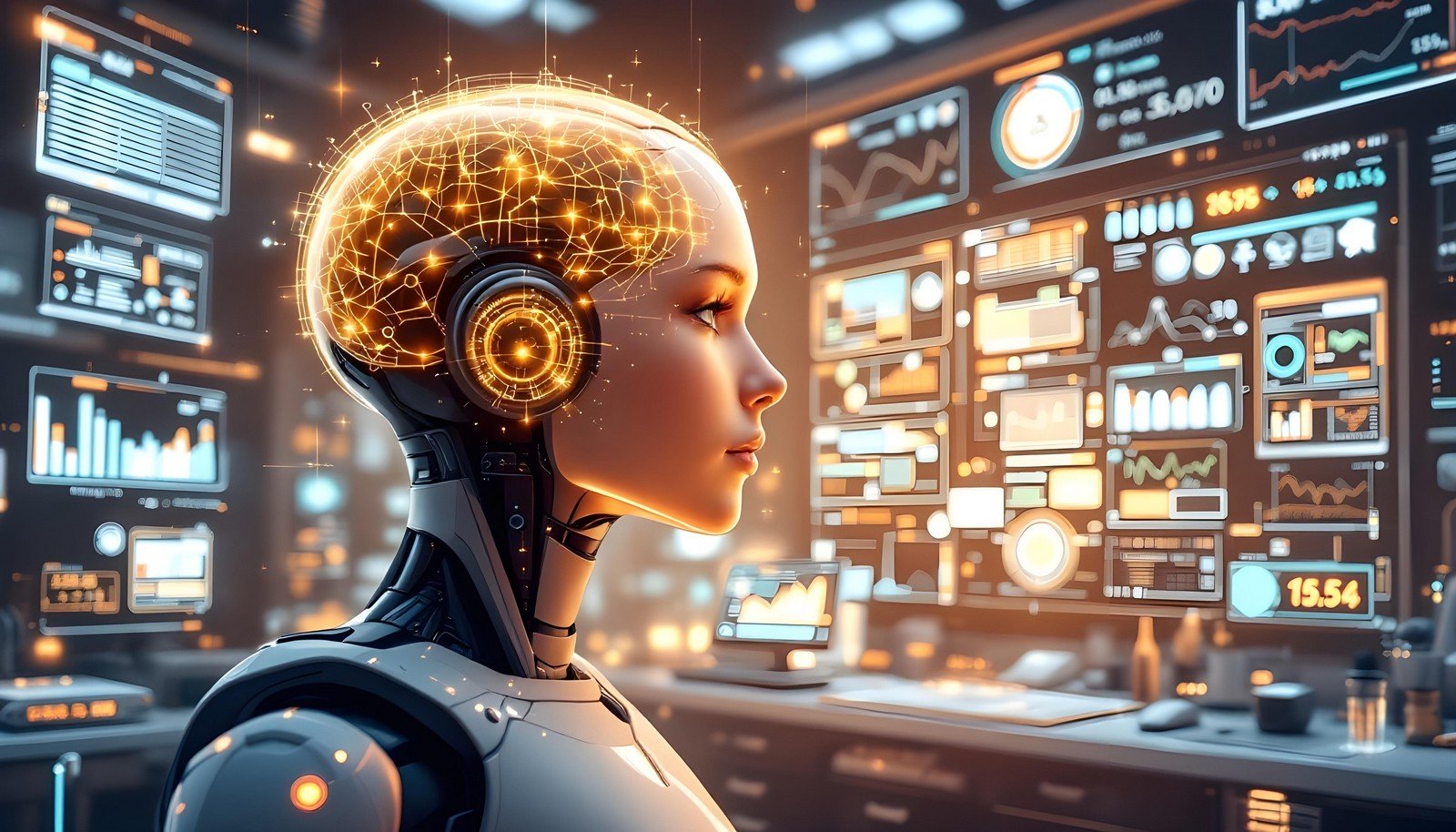Strong AI 
Quick Navigation:
- Strong AI Definition
- Strong AI Explained Easy
- Strong AI Origin
- Strong AI Etymology
- Strong AI Usage Trends
- Strong AI Usage
- Strong AI Examples in Context
- Strong AI FAQ
- Strong AI Related Words
Strong AI Definition
Strong AI, also known as Artificial General Intelligence (AGI), is a form of artificial intelligence that aims to replicate human intelligence comprehensively. Unlike narrow AI, which is designed to perform specific tasks, strong AI would have the capability to understand, learn, and apply knowledge across a wide range of tasks and domains, similar to a human being. Technically, strong AI involves building models that can make sense of complex, abstract concepts, utilize reasoning, and exhibit cognitive functions like perception, language understanding, and problem-solving across various fields without being limited to a predefined set of functions or data.
Strong AI Explained Easy
Imagine a robot that can think just like a person. It can understand what you say, learn new things on its own, and even come up with new ideas! Strong AI would be like a super-smart friend that doesn’t need any help figuring things out – it could play games, solve math problems, and even help people make big decisions.
Strong AI Origin
The concept of strong AI emerged from early discussions around artificial intelligence in the 1950s and 1960s when scientists began exploring the idea of machines that could emulate human-like thought. The goal was to create AI that didn’t just mimic behaviors but could actually understand and learn autonomously. As computing power and knowledge of the brain advanced, the possibility of strong AI gained traction in academic circles, sparking debates about the ethical and societal impacts of such technology.
Strong AI Etymology
The term “strong AI” was popularized by philosopher John Searle, distinguishing it from "weak AI," which only simulates human cognition. Searle used the term to highlight AI that genuinely possesses understanding and intelligence, not merely programmed responses.
Strong AI Usage Trends
Interest in strong AI has grown significantly in recent decades due to advancements in machine learning, neural networks, and computational power. While no true strong AI has been developed, progress in AI research, such as natural language processing and autonomous robotics, has driven both enthusiasm and concern over the potential for creating human-equivalent intelligence. Strong AI remains a significant topic in AI ethics and regulatory discussions, as experts debate the control and safety implications of such technology.
Strong AI Usage
- Formal/Technical Tagging: Artificial General Intelligence, Cognitive Computing, Autonomous Reasoning
- Typical Collocations: achieving strong AI, research in strong AI, potential of strong AI, challenges of strong AI, future of strong AI
Strong AI Examples in Context
“Scientists are divided over whether strong AI can be achieved within this century or if it is an impossible goal.”
“While today’s AI can beat humans at specific games, it is far from the adaptive, wide-ranging intelligence of strong AI.”
“Developing strong AI involves creating systems that can learn and make decisions independently, without human input.”
Strong AI FAQ
- What is strong AI?
Strong AI, or AGI, is a form of artificial intelligence that can fully replicate human intelligence and reasoning. - How does strong AI differ from narrow AI?
Unlike narrow AI, which performs specific tasks, strong AI can understand and learn across various tasks like a human. - Is strong AI possible?
Many scientists believe strong AI is theoretically possible, though there are significant technical and ethical challenges. - Why is strong AI important?
Strong AI could transform many fields, offering more advanced decision-making, learning, and adaptability. - What are the risks of strong AI?
Potential risks include loss of control, ethical issues, and unpredictable behavior. - Who coined the term strong AI?
Philosopher John Searle introduced the term to distinguish it from narrow AI. - How would strong AI impact jobs?
Strong AI could automate a wide range of jobs, leading to both new opportunities and significant job displacement. - What is required to create strong AI?
Developing strong AI requires advancements in machine learning, neural networks, and understanding of human cognition. - When will we see strong AI?
There is no definitive timeline; some predict decades, while others think it may never be fully achieved. - Why is strong AI also called AGI?
AGI stands for Artificial General Intelligence, emphasizing its broad, human-like capabilities.
Strong AI Related Words
- Categories/Topics: Artificial Intelligence, Cognitive Science, Robotics, Machine Learning
- Word Families: intelligence, general, reasoning, cognition, autonomy
Did you know?
OpenAI's language model GPT-3 demonstrated an unprecedented ability to generate human-like text, sparking discussions about the possibility of achieving strong AI. Although GPT-3 is still considered "narrow AI," its versatility in tasks like storytelling, code writing, and answering questions showcases how close we might be getting to more advanced AI forms that could eventually approach general intelligence.
PicDictionary.com is an online dictionary in pictures. If you have questions or suggestions, please reach out to us on WhatsApp or Twitter.Authors | Arjun Vishnu | @ArjunAndVishnu

I am Vishnu. I like AI, Linux, Single Board Computers, and Cloud Computing. I create the web & video content, and I also write for popular websites.
My younger brother, Arjun handles image & video editing. Together, we run a YouTube Channel that's focused on reviewing gadgets and explaining technology.



Comments powered by CComment